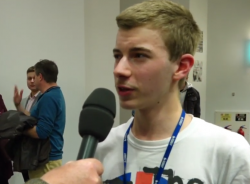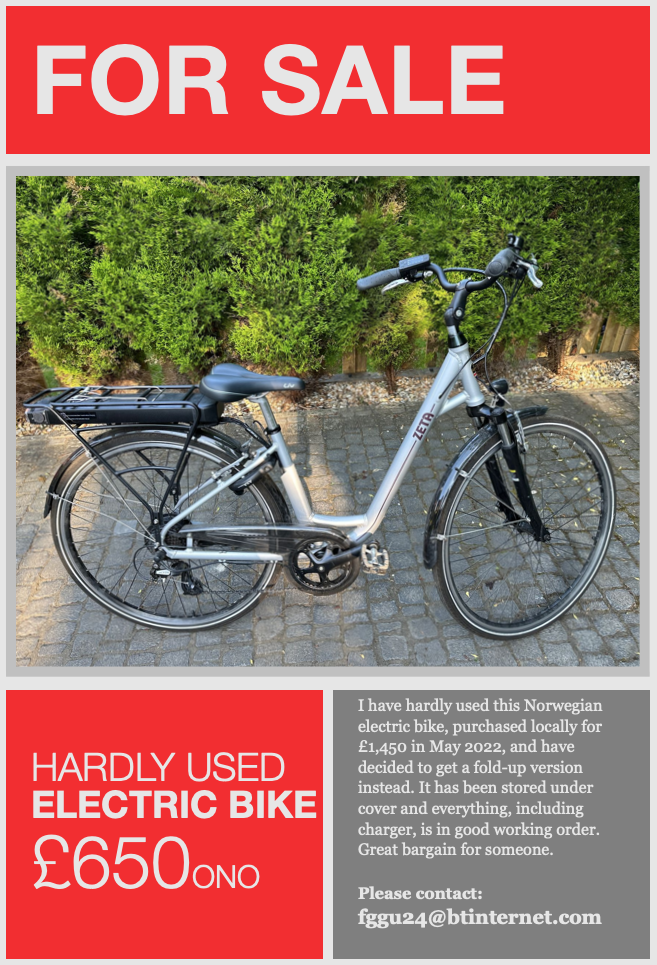 Abraham Lincoln
If given the truth, the people can be depended upon to meet any national crisis...
Abraham Lincoln
If given the truth, the people can be depended upon to meet any national crisis...
 Guildford news...
for Guildford people, brought to you by Guildford reporters - Guildford's own news service
Guildford news...
for Guildford people, brought to you by Guildford reporters - Guildford's own news service
Letter: Our Political Scene is Not Herd
Published on: 27 Nov, 2019
Updated on: 26 Nov, 2019

A University of Surrey student giving his view after last week’s hustings.
From George Potter
Lib Dem borough councillor for Burpham
In response to the ludicrous complaint by John Perkins (Our Democracy, and the Vote of the Student Herd) that it is somehow unfair for students to have an option of where to cast their ballot I must point out that this is not something unique to students.
Anyone who spends part of the year resident in more than one location is entitled to register to vote in local council elections and parliamentary elections.
In local elections, those resident in more than one council area are entitled to cast a ballot in each of those areas. In parliamentary elections, those resident in more than one constituency are entitled to cast a ballot in any, but only one of those constituencies.
This is based on the simple reality that there are many people, who, for a variety of reasons, might need to split their time between two different areas.
As well as students, people needing to be resident across different areas might be Armed Forces personnel, those who travel on business, those who spend part of the year living with relatives, or simply those who rent or own more than one property.
And as someone who’s been a political campaigner in Guildford since 2009, I can roundly rebuff the suggestion that any party has benefited from a student “herd” vote.
In my experience, most students don’t vote at their term-time address but vote at home, and their votes certainly don’t all go to one party en masse.
Instead of a conspiracy theory about student votes swinging election results, I can direct Mr Perkins to the excellent, readily accessible, research on voting patterns in the 2017 election.
That election began with a widespread assumption of an impending Conservative landslide which, over the course of a disastrous Conservative campaign, resulted in those who feared a Corbyn government to switch to the Conservatives en masse.
Those who feared a Conservative majority (especially Remain voters), switched heavily towards the Labour Party.
The result was all other parties had their vote share squeezed significantly while Labour and the Conservatives obtained more than 80% of the vote between them, for the first time in decades.
In the intervening two years, the political kaleidoscope has been shaken once again and it is hard for anyone to predict with any certainty what the outcome of this election would be.
But I put it to Mr Perkins that his fellow voters, rather than being a mindless horde of dupes easily corralled into tactically voting one way or the other by mysterious political puppet-masters, are in fact fairly intelligent people quite capable of looking at the issues and the parties in an election and, shock horror, deciding to vote differently to him.
I appreciate such a notion might come as a shock to the system for Mr Perkins, but it’s certainly a lot more plausible than third-rate conspiracy theories about herd voters.
Responses to Letter: Our Political Scene is Not Herd
Leave a Comment Cancel reply
Please see our comments policy. All comments are moderated and may take time to appear. Full names, or at least initial and surname, must be given.Recent Articles
- Trans Protest on Guildford High Street
- Notice: Open Mic Night at the Institute
- Teenage Suspects Arrested After Report of Indecent Assault
- Highways Bulletin May 5 – Open Day at Merrow
- Letter: Government Statements on Council Reorganisation Leave Me More Nervous Than Ever
- Open Letter: Why Am I a Lower Priority for Housing?
- Concerns Grow over Tree Felling on Loseley Estate During Bird-nesting Season
- Updated: Independent Wins By-election With a Big Majority
- Letter: Political Expediency Should Not Be the Motive for Local Government Reorganisation
- Lib Dems and Labour Respond to SCC’s Two-unitary Proposal


Recent Comments
- Warren Gill on Guildford High Street, Then and Now – Nothing Can Stop Evolution
- Aubrey Leahy on Guildford High Street, Then and Now – Nothing Can Stop Evolution
- Angela Richardson on Open Letter: Why Am I a Lower Priority for Housing?
- D (Simmo) Simmonds on Open Letter: Why Am I a Lower Priority for Housing?
- Fiona Thompson on Police Investigate as Catapult Attack on Wildlife Causes Outrage Across Ash
- Sara Tokunaga on Guildford High Street, Then and Now – Nothing Can Stop Evolution
Search in Site
Media Gallery
Dragon Interview: Local Artist Leaves Her Mark At One of England’s Most Historic Buildings
January 21, 2023 / No Comment / Read MoreDragon Interview: Lib Dem Planning Chair: ‘Current Policy Doesn’t Work for Local People’
January 19, 2023 / No Comment / Read MoreA3 Tunnel in Guildford ‘Necessary’ for New Homes, Says Guildford’s MP
January 10, 2023 / No Comment / Read More‘Madness’ for London Road Scheme to Go Ahead Against ‘Huge Opposition’, Says SCC Leader
January 6, 2023 / No Comment / Read MoreCouncillor’s Son Starts Campaign for More Consultation on North Street Plan
December 30, 2022 / No Comment / Read MoreCounty Council Climbs Down Over London Road Works – Further ‘Engagement’ Period Announced
December 14, 2022 / No Comment / Read MoreDragon Interview: GBC Reaction to the Government’s Expected Decision to Relax Housing Targets
December 7, 2022 / No Comment / Read MoreHow Can Our Town Centre Businesses Recover? Watch the Shop Front Debate
May 18, 2020 / No Comment / Read More









John Perkins
November 27, 2019 at 11:09 am
It may not be unique to students, but they are far and away the largest group able to take advantage of the ability to register in more than one place.
Whether or not owning a second home is a valid reason to enjoy two votes is dubious, as is travelling on business. Proxy votes are readily available and postal votes are freely given out. Being in another place at the time of an election is no barrier to voting in it – I did it for many years when I worked in Europe.
Academic studies exist which conclude that students could easily swing the vote in their term-time constituencies. If they do not do so and mostly vote in their home constituencies, then why is there a statistical correlation between students in a constituency and an anti-Tory result?
There was no “switch” to Labour in 2017. About two million votes could be said to have switched (back) from UKIP to the Conservatives following their promise to respect the referendum result. Another one million probably switched from UKIP to Labour when they made the same promise. Labour also seems to have gained half a million votes from the Greens, whereas the Lib Dem vote was static.
After all that switching there were about 1.7 million additional votes cast in England (though not in Scotland or Northern Ireland), every one of which was in favour of Labour. They cannot be explained as coming from students because that number exceeds the total of all students in the country at the time. So who were they and why did they vote en masse for a single party?
George Potter
November 27, 2019 at 8:08 pm
Correlation does not imply causation, something which I would have hoped would have been obvious.
Jacob Allen
November 27, 2019 at 6:10 pm
Well said George.
Jacob Allen is a Guildford Labour political activist.
John Perkins
November 29, 2019 at 2:30 am
What is being applauded here?
Is it the spirited defence of one of the most undemocratic aspects of the electoral system in England and Wales?
Imagine for a moment a University Vice-Chancellor living in a farmhouse on the Hog’s Back. As a resident of Shalford ward he would be entitled to two votes in the borough council elections. On the other hand, a university student, living on campus less than a kilometre away would be, as a resident of Onslow ward, entitled to up to three votes in the same election, plus another three if their home town were, say, Aldershot, just because they were living away from home.
Or is it the notion that suspicions about unusual voting patterns plainly visible in the published data can be dismissed without evidence as a conspiracy theory?
Both Mr Allen and Mr Potter belong to parties which appear to benefit from student votes.
Few would be so rude as to describe their fellow voters as “a mindless horde of dupes”, though, as I recall, some Remain campaigners still claim that those voting Leave did not understand the question and were misled.